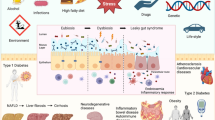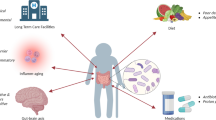Abstract
Increased levels of homocysteine are found systemically and in intestinal mucosa of patients with inflammatory bowel disease, and, specifically, in ulcerative colitis (UC). However, there are controversial reports regarding the factors contributing to increased levels of homocysteine in UC. Furthermore, little information is available regarding the relationship between hyperhomocysteinemia (HHcy), vitamin status, and genetic polymorphisms of homocysteine-related enzymes in these patients. This study examined four functional polymorphisms linked to homocysteine metabolism (MTHFR C677T and A1298C, MTR A2756G and MTRR A66G), and evaluated plasma levels of homocysteine, folate, and vitamin B12 in 310 consecutive patients with UC and 936 age- and sex-matched healthy controls from southeast China. The variant allele and genotypic frequencies in MTHFR A1298C, MTR A2756G and MTRR A66G genes were significantly higher in patients with UC compared to healthy controls. Further, HHcy and low levels of folate and vitamin B12 were more frequent in patients with UC. The MTR 2756G allele, extent of the disease, and gender were the independent determinants of HHcy in these patients. These findings suggest that genetic and nutritional factors have a synergetic effect on HHcy in patients with UC. In conclusion, our data highlight a prevention strategy for moderation of HHcy and supplementation with folate and vitamine B12 in patients with UC from Southeast China.
Similar content being viewed by others
References
Bjerregaard, L. T., Nederby, N. J., Fredholm, L., Brandslund, I., Munkholm, P., & Hey, H. (2002). Hyperhomocysteinaemia, coagulation pathway activation and thrombophilia in patients with inflammatory bowel disease. Scandinavian Journal of Gastroenterology, 37, 62–67.
Brunner, G., & Creutzfeldt, W. (1989). Omeprazole in the long-term management of patients with acid-related diseases resistant to ranitidine. Scandinavian Journal of Gastroenterology Supplement, 166, 101–105. discussion 111-3.
Chen, M., Peyrin-Biroulet, L., Xia, B., Gueant-Rodriguez, R. M., Bronowicki, J. P., Bigard, M. A., et al. (2008). Methionine synthase A2756G polymorphism may predict ulcerative colitis and methylenetetrahydrofolate reductase C677T pancolitis, in Central China. BMC Medical Genetics, 9, 78.
Chen, M., Xia, B., Rodriguez-Gueant, R. M., Bigard, M., & Gueant, J. L. (2005). Genotypes 677TT and 677CT+1298AC of methylenetetrahydrofolate reductase are associated with the severity of ulcerative colitis in central China. Gut, 54, 733–734.
Chowers, Y., Sela, B. A., Holland, R., Fidder, H., Simoni, F. B., & Bar-Meir, S. (2000). Increased levels of homocysteine in patients with Crohn’s disease are related to folate levels. American Journal of Gastroenterology, 95, 3498–3502.
Coppede, F., Colognato, R., Bonelli, A., Astrea, G., Bargagna, S., Siciliano, G., et al. (2007). Polymorphisms in folate and homocysteine metabolizing genes and chromosome damage in mothers of Down syndrome children. American Journal of Medical Genetics A, 143A, 2006–2015.
Danese, S., Sgambato, A., Papa, A., Scaldaferri, F., Pola, R., Sans, M., et al. (2005). Homocysteine triggers mucosal microvascular activation in inflammatory bowel disease. American Journal of Gastroenterology, 100, 886–895.
De Groote, M. A., Testerman, T., Xu, Y., Stauffer, G., & Fang, F. C. (1996). Homocysteine antagonism of nitric oxide-related cytostasis in Salmonella typhimurium. Science, 272, 414–417.
Drzewoski, J., Gasiorowska, A., Malecka-Panas, E., Bald, E., & Czupryniak, L. (2006). Plasma total homocysteine in the active stage of ulcerative colitis. Journal of Gastroenterology and Hepatology, 21, 739–743.
Gabriel, H. E., Crott, J. W., Ghandour, H., Dallal, G. E., Choi, S. W., Keyes, M. K., et al. (2006). Chronic cigarette smoking is associated with diminished folate status, altered folate form distribution, and increased genetic damage in the buccal mucosa of healthy adults. American Journal of Clinical Nutrition, 83, 835–841.
Jiang, L., Xia, B., Li, J., Ye, M., Yan, W., Deng, C., et al. (2006). Retrospective survey of 452 patients with inflammatory bowel disease in Wuhan city, central China. Inflammatory Bowel Disease, 12, 212–217.
Laraqui, A., Allami, A., Carrie, A., Raisonnier, A., Coiffard, A. S., Benkouka, F., et al. (2007). Relation between plasma homocysteine, gene polymorphisms of homocysteine metabolism-related enzymes, and angiographically proven coronary artery disease. European Journal of Internal Medicine, 18, 474–483.
Leclerc, D., Campeau, E., Goyette, P., Adjalla, C. E., Christensen, B., Ross, M., et al. (1996). Human methionine synthase: cDNA cloning and identification of mutations in patients of the cblG complementation group of folate/cobalamin disorders. Human Molecular Genetics, 5, 1867–1874.
Mahmood, A., Needham, J., Prosser, J., Mainwaring, J., Trebble, T., Mahy, G., et al. (2005). Prevalence of hyperhomocysteinaemia, activated protein C resistance and prothrombin gene mutation in inflammatory bowel disease. European Journal of Gastroenterology and Hepatology, 17, 739–744.
Mahmud, N., Molloy, A., McPartlin, J., Corbally, R., Whitehead, A. S., Scott, J. M., et al. (1999). Increased prevalence of methylenetetrahydrofolate reductase C677T variant in patients with inflammatory bowel disease, and its clinical implications. Gut, 45, 389–394.
Morgenstern, I., Raijmakers, M. T., Peters, W. H., Hoensch, H., & Kirch, W. (2003). Homocysteine, cysteine, and glutathione in human colonic mucosa: Elevated levels of homocysteine in patients with inflammatory bowel disease. Digestive Diseases and Sciences, 48, 2083–2090.
Nielsen, J. N., Larsen, T. B., Fredholm, L., Brandslund, I., Munkholm, P., & Hey, H. (2000). Increased prevalence of methylenetetrahydrofolate reductase C677T variant in patients with IBD. Gut, 47, 456–457.
Oldenburg, B., Van Tuyl, B. A., van der Griend, R., Fijnheer, R., & van Berge Henegouwen, G. P. (2005). Risk factors for thromboembolic complications in inflammatory bowel disease: the role of hyperhomocysteinaemia. Digestive Diseases and Sciences, 50, 235–240.
Papa, A., Danese, S., Gasbarrini, G., & Gasbarrini, A. (2002). Genetic and nutritional predictors of hyperhomocysteinemia in inflammatory bowel disease. American Journal of Gastroenterology, 97, 490–491.
Papa, A., De Stefano, V., Danese, S., Chiusolo, P., Persichilli, S., Casorelli, I., et al. (2001). Hyperhomocysteinemia and prevalence of polymorphisms of homocysteine metabolism-related enzymes in patients with inflammatory bowel disease. American Journal of Gastroenterology, 96, 2677–2682.
Peyrin-Biroulet, L., Rodriguez-Gueant, R. M., Chamaillard, M., Desreumaux, P., Xia, B., Bronowicki, J. P., et al. (2007). Vascular and cellular stress in inflammatory bowel disease: revisiting the role of homocysteine. American Journal of Gastroenterology, 102, 1108–1115.
Robert, K., Nehme, J., Bourdon, E., Pivert, G., Friguet, B., Delcayre, C., et al. (2005). Cystathionine beta synthase deficiency promotes oxidative stress, fibrosis, and steatosis in mice liver. Gastroenterology, 128, 1405–1415.
Rogers, E. J., Chen, S., & Chan, A. (2007). Folate deficiency and plasma homocysteine during increased oxidative stress. New England Journal of Medicine, 357, 421–422.
Romagnuolo, J., Fedorak, R. N., Dias, V. C., Bamforth, F., & Teltscher, M. (2001). Hyperhomocysteinemia and inflammatory bowel disease: Prevalence and predictors in a cross-sectional study. American Journal of Gastroenterology, 96, 2143–2149.
Schneede, J., Refsum, H., & Ueland, P. M. (2000). Biological and environmental determinants of plasma homocysteine. Seminars in Thrombosis and Hemostasis, 26, 263–279.
Stocco, G., Martelossi, S., Sartor, F., Toffoli, G., Lionetti, P., Barabino, A., et al. (2006). Prevalence of methylenetetrahydrofolate reductase polymorphisms in young patients with inflammatory bowel disease. Digestive Diseases and Sciences, 51, 474–479.
Truelove, S. C., & Witts, L. J. (1955). Cortisone in ulcerative colitis; final report on a therapeutic trial. British Medical Journal, 2, 1041–1048.
Vecchi, M., Sacchi, E., Saibeni, S., Meucci, G., Tagliabue, L., Duca, F., et al. (2000). Inflammatory bowel diseases are not associated with major hereditary conditions predisposing to thrombosis. Digestive Diseases and Sciences, 45, 1465–1469.
Weisberg, I., Tran, P., Christensen, B., Sibani, S., & Rozen, R. (1998). A second genetic polymorphism in methylenetetrahydrofolate reductase (MTHFR) associated with decreased enzyme activity. Molecular Genetics and Metabolism, 64, 169–172.
Wilson, A., Platt, R., Wu, Q., Leclerc, D., Christensen, B., Yang, H., et al. (1999). A common variant in methionine synthase reductase combined with low cobalamin (vitamin B12) increases risk for spina bifida. Molecular Genetics and Metabolism, 67, 317–323.
Acknowledgments
This study was supported by grants from Ministry of Health of China for Welfare Projects (200802156), Clinical Research Center for Intestinal & Colorectal Diseases of Hubei Province (2008BCC002), and Hubei Provincial Science & Technology Fund for International Cooperation (2007CA003).
Author information
Authors and Affiliations
Corresponding author
Additional information
An erratum to this article can be found at http://dx.doi.org/10.1007/s12013-012-9337-2.
Rights and permissions
About this article
Cite this article
Jiang, Y., Xia, X., Wang, W. et al. Hyperhomocysteinemia and Related Genetic Polymorphisms Correlate with Ulcerative Colitis in Southeast China. Cell Biochem Biophys 62, 203–210 (2012). https://doi.org/10.1007/s12013-011-9283-4
Published:
Issue Date:
DOI: https://doi.org/10.1007/s12013-011-9283-4




